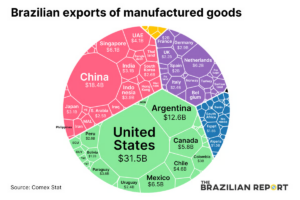Briefly: Malaysia is responding to tighter EU rules on deforestation by shifting its palm oil sales to North Africa and the Middle East instead.
Palm oil is the most popular vegetable oil on earth, used to whip up stir-fries (yum!), bake bundt cakes (scrumptious!), and blend hazardous biofuels (delicious!). But producing it at scale often means ripping up tropical forests and displacing wildlife to clear the way for palm trees.
Last year, the EU agreed to combat deforestation by forcing importers to prove their products weren’t made on deforested land.
Stay on top of your world from inside your inbox.
Subscribe for free today and receive way much more insights.
Trusted by 134,000+ subscribers
No spam. No noise. Unsubscribe any time.
Indonesia and Malaysia (the world’s largest and second largest producers) immediately filed complaints, calling the legislation protectionist and disputing its definition of deforestation. Earlier, they even accused the EU of “crop apartheid”.
They continue to lobby for changes before the EU rules take effect in 2024. But the fact Indonesia and Malaysia are already finding new buyers elsewhere suggests they hold little hope of changing the EU’s mind.
Intrigue’s take: This case is a reminder that policies don’t always work as intended: the EU hoped its rule would halt deforestation in South-East Asia. But for now, the palm oil producers are merely switching customers instead.
It’s also a reminder that Western aims are more easily thwarted in a multipolar world. As the world’s third largest consumer of palm oil, the EU has clout. But can you guess the top two palm oil importers? A hint: they’re the same two buyers rescuing Russian oil from EU sanctions. Yep, China and India.
Also worth noting:
- Malaysian palm oil exports to the EU declined 22% in February from the same time last year. Meanwhile, they jumped 32% to the Middle East and 51% to North Africa.
- The UK agreed to eliminate tariffs on Malaysian palm oil in exchange for joining the CPTPP.








